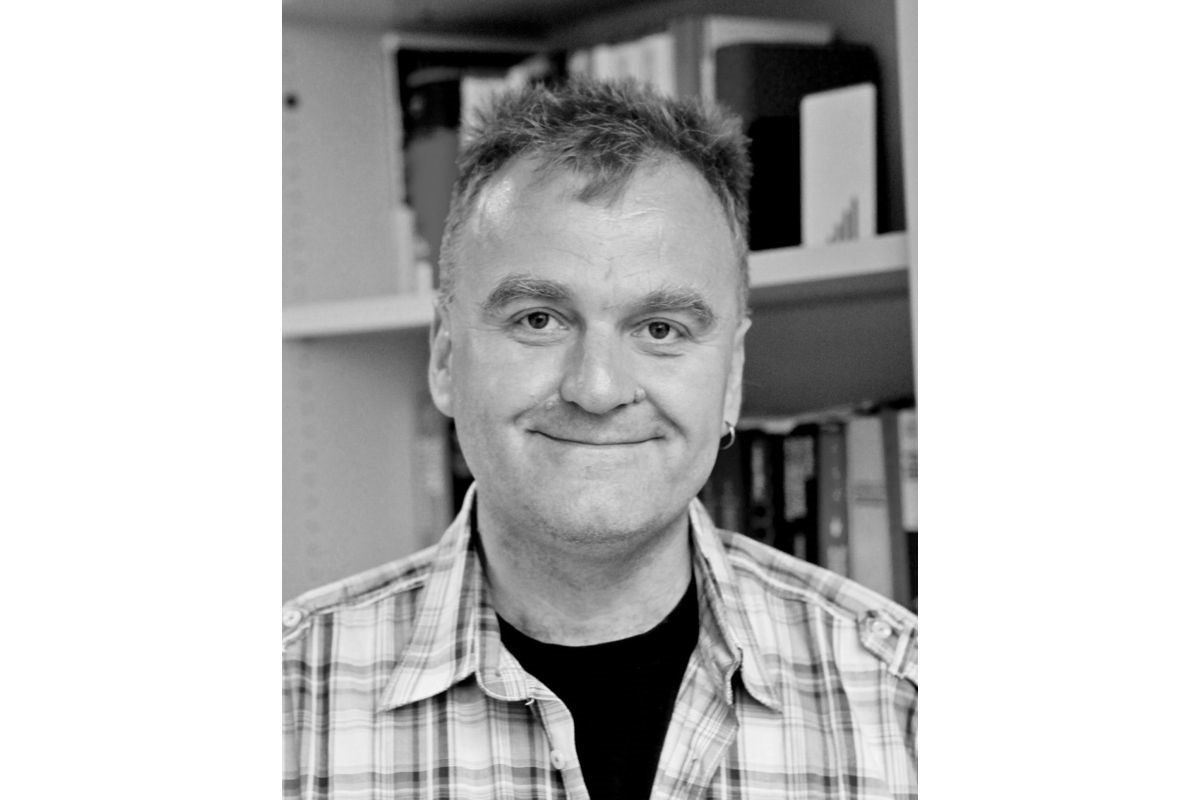
Der Fachbereich Chemie trauert um Prof. Dr. Helmut Cölfen ( †28.11.2023)
Ein Nachruf für Helmut Cölfen geschrieben von Stefan Mecking
Helmut Cölfen sadly passed away on November 28, 2023, after long illness, at the age of only 58 years. This is a terrible loss not only for his family, but also for his students, colleagues, and friends.
His scientific findings have entirely changed our view of crystallization processes, this fundamental understanding readily translating into many practical applications.
Helmut Cölfen was born on July 24, 1965 in Krefeld. He grew up in the area, the industrial heartland of Germany. From 1985 on he studied chemistry in Duisburg. He graduated with a PhD supervised by Werner Bochard in 1993. After postdoctoral research in Nottingham, he moved to the newly transformed Max-Planck-Institute for Colloids and Interfaces in Potsdam which was his scientific (and musical) home for the coming fifteen years. Fortunately, in 2010 he accepted an offer to join the Department of Chemistry of the University of Konstanz as a full professor of Physical Chemistry.
Helmut employed ultracentrifugation in his PhD work, a powerful analytical method that, however, found little use beyond the purely biological sciences then. This became one of his tools to explore crystallization mechanisms, (bio)mineralization, and hybrid materials. He elaborated that crystallization not only occurs by the long established mechanism of deposition of ions or molecules, but by ordered attachment of nanoparticles as building blocks. This further extended to the discovery of stable prenucleation clusters, species that should not exist according to classical theories. These groundbreaking and influental findings are also of immediate practical consequences in many instances, and Helmut collaborated with companies on problems ranging from bone repair and dental care to the scaling of washing machines.
Helmut was absolutely passionate about his science and much engaged for its success. Yet, one rarely saw him disequilibrated from his natural ease by any circumstances. Also in this respect he was a role model for his students, his group and younger colleagues. Despite his untimely demise, he leaves a legacy of young researchers in academia and industry alike.
Amongst Helmut's many ties to the academic community worldwide, especially the connection to the University of Granada delighted and encouraged him in the past few years. Despite his illness, he could spend several 'mini-sabbaticals' there between terms.
Beyond research, Helmut was much engaged in teaching on all curricular levels, and students embraced and valued his teaching of materials science and of physical chemistry not centered on lengthy formulae.
His scientific achievements were honored with numerous awards and fellowships, and most recently recognized with an ERC Synergy Grant.
Over the past years Helmut bore his illness with a bravery that was awe-inspiring, staying his own self and keeping us comfortable. He succeeded in keeping his enthusiasm and joy for his science and teaching, and his personal kindness was untouched.
Helmut leaves a hole in our hearts.
